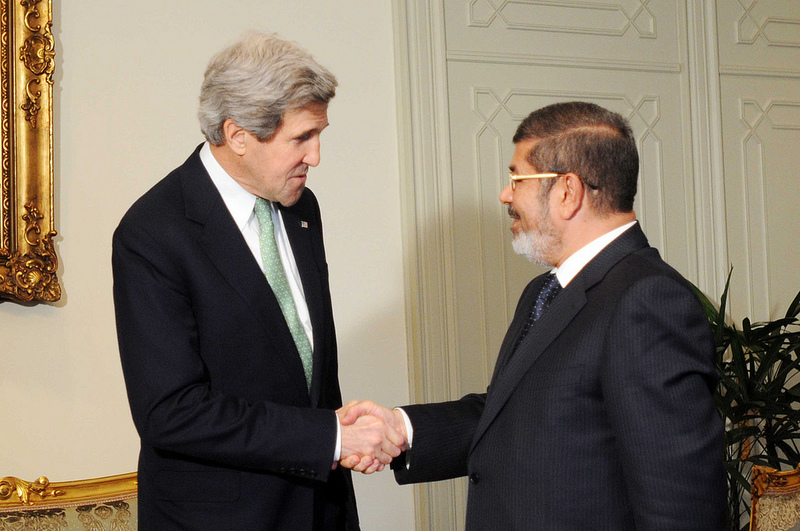
I happened to be spending a few days in New York and Washington DC for work, immediately after an Egyptian court sentenced a number of defendants to prison among them a number of Americans in the so-called "NGO Funding Trial", in which foreign NGOs were accused of illegally funding and supporting Egyptian NGOs during the last Parliamentary elections in 2012. "This case had already stirred up extensive debate twice before. The first time was when it was referred to the court by the Public Prosecution, despite the fact that these organizations’ activities were not secretive and were well-known to the Egyptian government. The second time was when the Egyptian authorities allowed an American government plane to transport the American defendants out of Egypt amid circumstances that still remain unclear.
While these recent rulings allowed for the suspension of the prison sentences and there is still room for appeal, they have galvanized public opinion in America beyond the typical reaction to normal criminal sentences. But this case has taken on so much political importance because it embodies the tensions in the relationship between the US administration and the ruling regime in Egypt, though, in my view it is just a short-lived bout.
From the early days of the Revolution, the US administration backed the Muslim Brotherhood movement in Egypt. Though official and actual power were in the hands of the Supreme Council of the Armed Forces (SCAF), the statements and actions of American officials indicated that the Muslim Brotherhood was held to be the up-and-coming power, the legitimate heir of the Egyptian Revolution, and the force most capable of filling the vacuum to restore stability and uphold American interests. Making skillful use of this situation, the Brotherhood presented itself as the sole alternative that was mature and ready both politically and organizationally.
When parliamentary and presidential elections took place, they proved that the US had made the right choice. Didn’t the Freedom and Justice Party (FJP) win the majority of the seats in parliament, and didn’t its candidate win the presidential election? And doesn’t democracy mean respecting the results of the ballot box? The truth is that the American position at the time was consistent with its stated policies, which bowed to the choice of the Egyptian people and our hopes to follow the fast track to democracy.
What is the significance of this back-story? Its significance lies in the fact that it explains why American public opinion has been roused against Egypt and its government as a result of the foreign funding case not as a normal criminal trial, but because the US administration and all those who bet on the democratic transition in Egypt have been caught in an awkward position with a regime they backed the entire way. Their position is made even more difficult by the fact that on several prior occasions, Egyptian officials claimed that the Egyptian judiciary was capricious, not independent, and its decisions politicized. American officials bought into this, and imagined a deal with the government or a phone call from a top official would ensure that the defendants would be acquitted. But when Egyptian officials invoked the independence of the judiciary, this fell on deaf ears.
The issue does not end here, and will have other repercussions. In Washington, a group of experts and researchers with influence on the decision-making process in the United States published an open letter to President Barack Obama calling on him to place pressure on President Mohamed Morsi to pardon the defendants or else impose cuts in civilian aid (as military aid has already been approved and can no longer be withheld). This is a dangerous demand, since it will not only create more confusion, but will also impose collective punishment on the Egyptian people. Personally, I don’t envision that the situation will reach that point, since I believe that the current tension in the US-Egypt relationship is not structural, but rather just a passing cloud related to a desire on America’s part to "polish its image" for domestic public opinion and to avoid similarly embarrassing situations in the future, without genuine interest in Egypt’s path to democracy. The debate over the foreign funding case is the best example of this. While Egyptian opposition parties and NGOs have screamed themselves hoarse in opposition to the current civil society law and the new draft bill put before the Shura Council, both of which restrict NGO activity and limit civil society’s ability to monitor the executive branch and this has been completely ignored the issue did not garner any international interest until a ruling came down against American citizens and then all of a sudden it became clear that the law is defective, the ruling is arbitrary and freedom is under threat.
What do we learn from this? Rescuing the democratic transition in Egypt will not come about through pressure from abroad. We should not accept interference from any side; it falls upon this nation’s citizens alone to take on this responsibility.
Ziad Bahaa-Eldin is an Egyptian Attorney-at-Law specialized in financial law, governance, and economic legislation. He is a founding member of the Egyptian Social Democratic Party and in 2012 he was elected Deputy-Leader of the Party. He was a member of the now-dissolved 2012 parliament.
Photo: US State Department
Image: Morsi%20Kerry%20US%20State%20Dept.jpg
